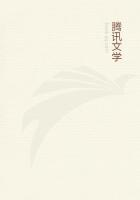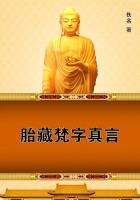Next he touched upon the Indians, and upon the extraordinary colony of anthropoid apes, which might be looked upon as an advance upon the pithecanthropus of Java, and as coming therefore nearer than any known form to that hypothetical creation, the missing link. Finally he described, amongst some merriment, the ingenious but highly dangerous aeronautic invention of Professor Challenger, and wound up a most memorable address by an account of the methods by which the committee did at last find their way back to civilization.
"It had been hoped that the proceedings would end there, and that a vote of thanks and congratulation, moved by Professor Sergius, of Upsala University, would be duly seconded and carried; but it was soon evident that the course of events was not destined to flow so smoothly. Symptoms of opposition had been evident from time to time during the evening, and now Dr. James Illingworth, of Edinburgh, rose in the center of the hall. Dr. Illingworth asked whether an amendment should not be taken before a resolution.
"THE CHAIRMAN: `Yes, sir, if there must be an amendment.'
"DR. ILLINGWORTH: `Your Grace, there must be an amendment.'
"THE CHAIRMAN: `Then let us take it at once.'
"PROFESSOR SUMMERLEE (springing to his feet): `Might I explain, your Grace, that this man is my personal enemy ever since our controversy in the Quarterly Journal of Science as to the true nature of Bathybius?'
"THE CHAIRMAN: `I fear I cannot go into personal matters. Proceed.'
"Dr. Illingworth was imperfectly heard in part of his remarks on account of the strenuous opposition of the friends of the explorers.
Some attempts were also made to pull him down. Being a man of enormous physique, however, and possessed of a very powerful voice, he dominated the tumult and succeeded in finishing his speech. It was clear, from the moment of his rising, that he had a number of friends and sympathizers in the hall, though they formed a minority in the audience. The attitude of the greater part of the public might be described as one of attentive neutrality.
"Dr. Illingworth began his remarks by expressing his high appreciation of the scientific work both of Professor Challenger and of Professor Summerlee. He much regretted that any personal bias should have been read into his remarks, which were entirely dictated by his desire for scientific truth. His position, in fact, was substantially the same as that taken up by Professor Summerlee at the last meeting. At that last meeting Professor Challenger had made certain assertions which had been queried by his colleague. Now this colleague came forward himself with the same assertions and expected them to remain unquestioned. Was this reasonable? (`Yes,' `No,' and prolonged interruption, during which Professor Challenger was heard from the Press box to ask leave from the chairman to put Dr. Illingworth into the street.)A year ago one man said certain things. Now four men said other and more startling ones. Was this to constitute a final proof where the matters in question were of the most revolutionary and incredible character? There had been recent examples of travelers arriving from the unknown with certain tales which had been too readily accepted. Was the London Zoological Institute to place itself in this position? He admitted that the members of the committee were men of character. But human nature was very complex.
Even Professors might be misled by the desire for notoriety.
Like moths, we all love best to flutter in the light.
Heavy-game shots liked to be in a position to cap the tales of their rivals, and journalists were not averse from sensational coups, even when imagination had to aid fact in the process.
Each member of the committee had his own motive for ****** the most of his results. (`Shame! shame!') He had no desire to be offensive. (`You are!' and interruption.) The corroboration of these wondrous tales was really of the most slender description.
What did it amount to? Some photographs. {Was it possible that in this age of ingenious manipulation photographs could be accepted as evidence?} What more? We have a story of a flight and a descent by ropes which precluded the production of larger specimens. It was ingenious, but not convincing. It was understood that Lord John Roxton claimed to have the skull of a phororachus. He could only say that he would like to see that skull.
"LORD JOHN ROXTON: `Is this fellow calling me a liar?' (Uproar.)"THE CHAIRMAN: `Order! order! Dr. Illingworth, I must direct you to bring your remarks to a conclusion and to move your amendment.'
"DR. ILLINGWORTH: `Your Grace, I have more to say, but I bow to your ruling. I move, then, that, while Professor Summerlee be thanked for his interesting address, the whole matter shall be regarded as `non-proven,' and shall be referred back to a larger, and possibly more reliable Committee of Investigation.'
"It is difficult to describe the confusion caused by this amendment.
A large section of the audience expressed their indignation at such a slur upon the travelers by noisy shouts of dissent and cries of, `Don't put it!' `Withdraw!' `Turn him out!' On the other hand, the malcontents--and it cannot be denied that they were fairly numerous--cheered for the amendment, with cries of `Order!'
`Chair!' and `Fair play!' A scuffle broke out in the back benches, and blows were freely exchanged among the medical students who crowded that part of the hall. It was only the moderating influence of the presence of large numbers of ladies which prevented an absolute riot. Suddenly, however, there was a pause, a hush, and then complete silence. Professor Challenger was on his feet. His appearance and manner are peculiarly arresting, and as he raised his hand for order the whole audience settled down expectantly to give him a hearing.














